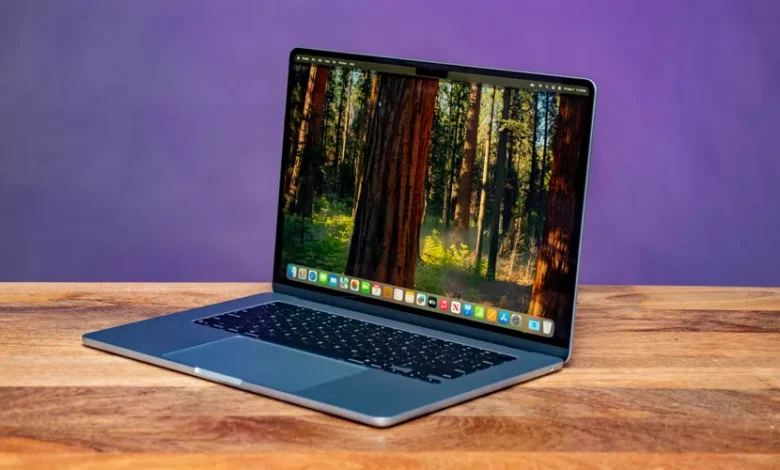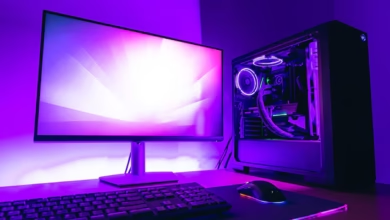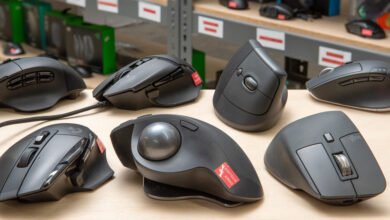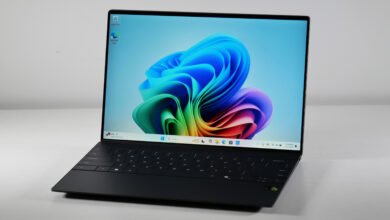Laptop: The Modern Workhorse of Technology

Laptops have become an inseparable part of our everyday lives. Whether you’re a student finishing assignments, a professional working remotely, or just someone who enjoys entertainment and gaming, the sits at the center of it all. Portable, powerful, and versatile, it’s no surprise that laptops remain one of the most essential tech devices in the world today.
In this article, we’ll dive deep into the world of laptops—exploring their history, how they’ve evolved, what makes them stand out compared to other devices, and why they’re still as important as ever in an age dominated by smartphones and tablets.
The Evolution of the Laptop
When laptops first emerged, they were bulky, expensive, and not nearly as powerful as desktop computers. The earliest portable computers from the 1980s looked more like oversized typewriters than the sleek, lightweight machines we know today. Despite their limitations, they laid the groundwork for the idea of computing on the go.
Fast forward a few decades, and have transformed into ultra-thin, high-performance devices capable of handling almost everything. From simple word processing to complex video editing, the modern packs an incredible amount of power in a compact design. The competition among major brands like Dell, HP, Apple, Lenovo, and ASUS has fueled innovation, leading to faster processors, longer battery lives, and lightweight builds.
What makes the evolution of laptops even more fascinating is how quickly they adapted to the needs of society. When remote work and online learning became mainstream, became the bridge connecting people to their jobs, schools, and communities. They’ve gone from being a luxury to being an absolute necessity in record time.
Why Laptops Still Matter in a Smartphone-Driven World

It’s true—smartphones dominate most of our daily communication and casual browsing. However, laptops still hold a unique position that no other device can fully replace. For one, laptops provide a larger screen, which is essential for productivity. Writing documents, editing videos, or even handling spreadsheets is nearly impossible to do effectively on a phone.
Another big reason matter is their balance of portability and power. Unlike desktops, can be carried anywhere, and unlike smartphones, they are equipped with the hardware to run demanding applications. A student attending online classes or a designer working on graphic-heavy software simply can’t rely on a phone or tablet the same way they can on a laptop.
Additionally, support a wide range of customization. Users can choose models suited for gaming, creative work, business, or just casual everyday use. This versatility makes far more universal than smartphones or tablets, which often feel limited despite their convenience.
The Types of Laptops and Their Uses
Not all are built the same, and that’s the beauty of it. Depending on your needs, you can find a specifically designed to suit your lifestyle.
1. Ultrabooks
Ultrabooks are thin, lightweight that prioritize portability without sacrificing too much performance. They’re perfect for business professionals or students who are constantly on the move. Think of devices like the MacBook Air or Dell XPS series—sleek, stylish, and powerful enough for everyday tasks.
2. Gaming Laptops
Gaming laptops are beasts when it comes to performance. Equipped with powerful GPUs, advanced cooling systems, and high-refresh-rate displays, these machines are built to handle demanding games and heavy applications. Brands like ASUS ROG, Alienware, and MSI dominate this category, delivering desktop-level performance in a portable package.
3. 2-in-1 Laptops
For people who want the best of both worlds, 2-in-1 laptops (also called convertible laptops) can function as both a traditional and a touchscreen tablet. These are great for creative professionals, artists, and those who value flexibility in their devices.
4. Business Laptops
These prioritize security, durability, and performance for professional use. They often include features like fingerprint scanners, strong build quality, and extended warranties. Lenovo’s ThinkPad series is a prime example of a business done right.
Each category proves that aren’t just one-size-fits-all. Instead, they’re designed with diverse needs in mind, ensuring that whether you’re a gamer, student, or professional, there’s a laptop tailored for you.
What to Look for When Buying a Laptop
Buying a laptop isn’t as simple as picking the one with the shiniest design. There are several factors to consider to ensure that you’re getting a device that matches your needs.
First and foremost, performance matters. Look at the processor, RAM, and storage. A high-end processor like Intel’s i7 or AMD’s Ryzen 7 ensures smooth performance for heavy tasks, while 8GB to 16GB of RAM is ideal for multitasking. For storage, SSDs are a must since they are faster and more reliable than traditional HDDs.
Next, think about the battery life. A with powerful hardware but poor battery life can quickly become frustrating. Depending on your lifestyle, you might need a that lasts 8–12 hours on a single charge. Students and travelers, in particular, benefit from longer battery life.
Finally, don’t ignore the display and build quality. A good screen with high resolution makes working or streaming much more enjoyable, while a solid build ensures durability. If you’re someone who carries your laptop daily, weight and thickness also become crucial factors.
The Role of Laptops in Work and Education
The pandemic years highlighted just how important are in both education and the workplace. Schools worldwide transitioned to online learning, and students relied on laptops to attend classes, complete assignments, and collaborate virtually. For many families, a reliable laptop became just as important as electricity or internet access.
In the professional world, became the cornerstone of remote work. Video conferencing platforms like Zoom and collaboration tools like Slack or Microsoft Teams wouldn’t have been nearly as effective without Employees could work from home, attend virtual meetings, and stay productive all thanks to these machines.
Even today, as hybrid models of work and learning continue, remain central to this balance. They’ve proven to be more than just gadgets—they’re essential tools that keep our education and professional lives functioning smoothly.
The Future of Laptops
Looking ahead, the future of laptops seems exciting. Manufacturers are pushing boundaries with foldable displays, AI-powered performance optimizations, and even longer battery life. Lightweight materials and fanless designs are making quieter and more portable than ever.
We’re also seeing a rise in eco-friendly laptops, with companies focusing on recyclable materials and energy-efficient components. This shift reflects the growing demand for sustainable technology.
In addition, cloud-based computing and 5G connectivity are expected to play a huge role in shaping the next generation of Imagine accessing all your files, applications, and even games directly from the cloud, without worrying about storage or processing power. Laptops could become even thinner and lighter, yet more powerful, thanks to cloud integration.
Final Thoughts
The laptop has truly stood the test of time. Despite competition from tablets, smartphones, and even desktop PCs, it remains the most versatile and practical device for everyday use. Its ability to balance power, portability, and functionality ensures that it continues to dominate both personal and professional spheres.
Whether you’re a gamer looking for high-performance, a student managing assignments, or a professional working remotely, there’s a out there designed just for you. And as technology continues to evolve, laptops will only become smarter, lighter, and more efficient—cementing their role as the modern workhorse of technology



